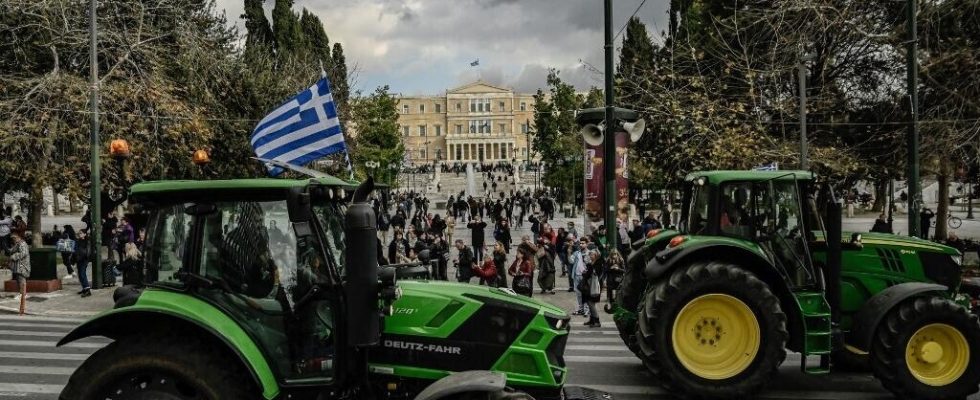3 mins
A press review presented in partnership with The Balkan Courier
The mobilization of farmers does not weaken in Greece. On Tuesday, 250 tractors converged on Athens to blockade the capital. Hard hit by the fires and floods of 2023, farmers are calling in particular for the elimination of taxes on fuel.
Farmers’ discontent can also be heard in Croatia. After the demonstrations in December caused by the slaughter of pigs deemed abusive, farmers from Međimurje and Slavonia demonstrated this week with their tractors. They too denounce increasingly harsh working conditions.
North Macedonia has long been a major agricultural land.. But global warming is putting the sector to death and public aid is not enough to maintain production, while cultivated areas continue to decline. How to get things back on track?
Resumption of anti-Roma racism
A few days ago, a police raid on a Roma camp in Belgrade turned into a pogrom. Violence and racism against the minority are increasingin the indifference of the authorities and almost the entire political class.
In Montenegro, the coastal town of Bar is in mourning. A fire ravaged a Roma slum on Thursday morning, killing four people. The Roma Council of Montenegro denounces the unworthy conditions in which too many people still live.
In Bulgaria too, nothing is getting better for the Roma who remain, with the LGBT community, the main target of hate messages on social networks. Even politicians are guilty of racism towards the country’s largest minority.
The Balkans, China and Russia
In Serbia, the inhabitants of the town of Krivelj entered into resistance against the Chinese group Zijin Mining, which has been operating the Bor copper mines since 2018. They demand the relocation of their village, which has become unlivable due to massive pollution.
Throughout the Balkans, China is engaged in vast infrastructure projectsparticularly in the energy field, and without any concern either for the environment or for the living conditions of local populations.
Belgrade would host more than 200,000 Russian exiles. The death of Alexei Navalny sparked a powerful wave of sadness and anger within the community. Especially since the Serbian authorities are refusing residence visas to more and more declared opponents of Vladimir Putin’s regime.
As Ukraine enters its third year of war, the Balkans remain a “zone of influence”, where Russians and Westerners test their balance of power.
While the region has long been dependent on coal, Kosovo begins its green transition. Finally. While coal still remains by far the main source of electricity, solar and wind power are on the rise. Can the ambitious objectives of the 2022-2031 energy strategy be met?
On February 7, a drunken police officer killed the manager of a cafe in Tuzla with his weapon. Shocked by this feminicide, thousands of people have already demonstrated twice to denounce the failings of the authorities and the dysfunctions of the police. This same week, other feminicides caused sadness, anger and mobilizations in North Macedonia and Serbia.
Montenegro must understand the urgency of a real integration of disabled people. That these citizens can contribute a lot to society, that they have the right to employment and to parenthood. This is the tireless fight of Marijeta Mojašević.
